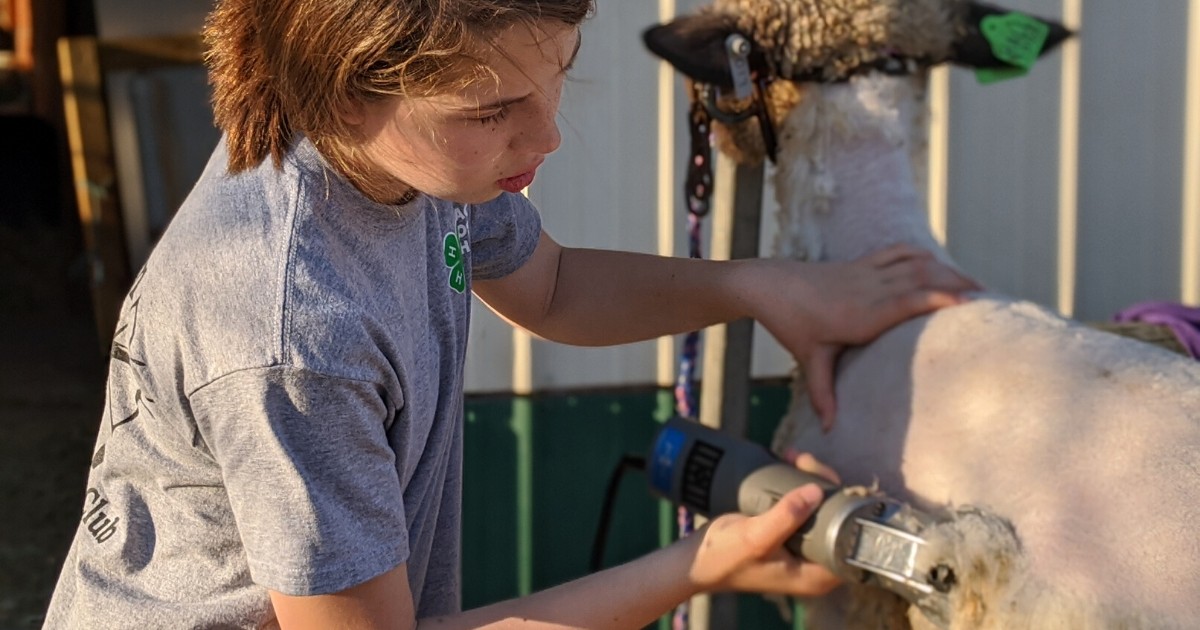
COVID-19 enhances life skill development in 4-h livestock project participants

COVID-19 enhances life skill development in 4-h livestock project participants
by Susan Garey, Extension Agent, Animal Science and State 4-H Animal Science Program Coordinator, July 2020
Raising livestock through 4-H is one of the most traditional project area offerings and frequently, many people assume that the main focus of 4-H livestock projects is teaching youth about agriculture. While this indeed may be a positive secondary side effect of youth livestock projects and lead to future career choices, livestock projects are, in reality, one of the best vehicles for teaching youth valuable life skills. No matter what else is going on in their lives or how young people feel, these project animals still need daily care provided by 4-H members. The life skills we typically focus on with these projects are commitment, responsibility, persistence, record-keeping, care and compassion. Feeding, cleaning, training, grooming and management are just a few of the routine daily tasks 4-H livestock project members take on.
Many youth and families began preparing for this summer’s show season last fall, making breeding decisions for this year’s project animals and procuring steer projects long before COVID-19-19 entered the world stage and dramatically changed our daily lives. Some families understandably decided not to pursue livestock projects this year with all of the uncertainty surrounding fairs and exhibitions. Still, for those members who carried on, the continuation of 4-H livestock projects has lent a sense of normalcy to an otherwise strange time of social distancing, online school and minimal extracurricular activities.
Many youth and families began preparing for this summer’s show season last fall ...
While the same basic daily needs of livestock project animals must still be met, the COVID-19 situation has served to expand and enhance the typical life skill learning opportunities with 4-H livestock projects. Members had to make decisions about the importance of their projects and how much to invest financially in their project animals with no guarantee of being able to exhibit them or potentially receive a return on those investments. They have spent hundreds, if not thousands, of hours working with these project animals to date. They had to quickly adapt to new ways of exhibiting their projects and receiving feedback through virtual platforms to learn new skills and new technology.
They still had to meet changing deadlines, submit documentation in alternative formats and meet educational certification requirements with significant life distractions going on simultaneously. They had to take the initiative, figure out how to learn in different ways and be self-driven and self-motivated to improve and build their livestock skills without seeing their 4-H leaders and industry mentors face to face due to social distancing requirements. They had to cope with the disappointment of the cancellation of events that they look forward to each year and have realized how meaningful relationships with people are. They had to move forward despite uncertainty and make decisions with the best information available then. These are all life skills that adults must be able to exercise regularly to be successful in life and 4-H livestock project members have been doing this with regularity during the COVID-19 crisis.
Multiple University research projects conducted by youth development professionals at Rutgers, Purdue, Texas A&M and other universities over the last two decades have demonstrated that youth who participate in 4-H livestock projects show life skill development in several categories. Following the COVID-19 crisis, there may not be any studies explicitly focusing on life skill development in 4-H livestock project members during a pandemic.
Still, additional life skills are being acquired as a result of our current challenging and uncertain times. No matter the outcome, we are proud of our 4-H livestock project members who have risen to this challenge. We are confident it is helping them prepare for their futures and benefit their communities and society!
